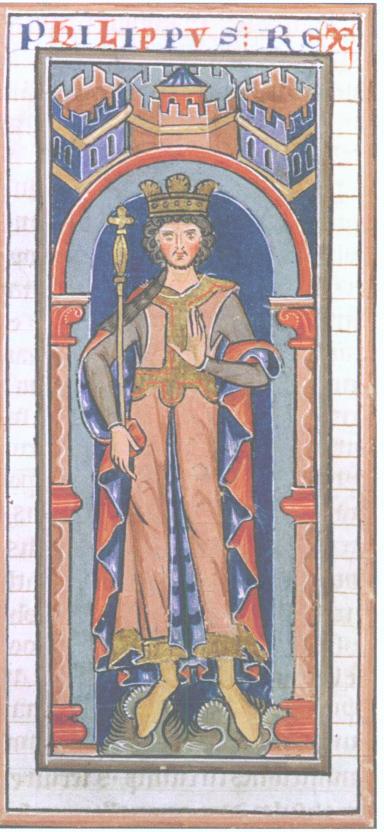|
Irmengard Of Henneberg
Irmingard of Henneberg was the daughter of Berthold I of Henneberg and Bertha of Putelendorf. She was born between 1134 and 1136. She was the older sister of Poppo VI von Henneberg (1140-1191), Lukardis von Henneberg (1142-1220), and Otto IV Count of Henneberg (1144-1212). Marriage and issue Irmingard married Conrad, Count Palatine of the Rhine on 1160. She and Conrad had the following children. *Agnes of Hohenstaufen, 1176-1204; married Henry V, Count Palatine of the Rhine Henry V, the Elder of Brunswick (german: Heinrich der Ältere von Braunschweig; – 28 April 1227), a member of the House of Welf, was Count Palatine of the Rhine from 1195 until 1212. Life Henry was the eldest son of Henry the Lion, Duke of S ... *Friedrich, stillborn son Death Irmingard died of unknown causes in 1197 at the age of 61-63. Her burial place is unknown. References {{DEFAULTSORT:Irmingard of Henneberg House of Henneberg Counts Palatine of the Rhine Hohenstaufen 1130s births 1197 deat ... [...More Info...] [...Related Items...] OR: [Wikipedia] [Google] [Baidu] |
Bertha Of Putelendorf
Bertha von Putelendorf (died 1190) was the daughter of Count Palatine Friedrich von Putelendorf in Saxony. She married Berthold I, Count of Henneberg (died 1157), and had two surviving children: * Irmingard of Henneberg (a daughter, died 15 July 1197) *Poppo VI, Count of Henneberg Poppo can mean: * Bubo, Duke of the Frisians, also spelled Poppo (674–734), a king of Friesland * Poppo of Grapfeld (died 839/41), an early ninth-century ancestor of the Babenbergs * Poppo, Duke of Thuringia (died after 906), a margrave * Pop ... (a son, died 14 September 1190) Bertha was also the grandmother of Agnes of Hohenstaufen through her daughter Irmgard von Henneberg. References German countesses 12th-century German women 1190 deaths Year of birth unknown {{Germany-countess-stub ... [...More Info...] [...Related Items...] OR: [Wikipedia] [Google] [Baidu] |
Conrad, Count Palatine Of The Rhine
Conrad of Hohenstaufen ( – 8 November 1195) was the first hereditary Count Palatine of the Rhine. His parents were Frederick II of Swabia (1090–1147), Duke of Swabia, and his second wife Agnes of Saarbrücken, daughter of Frederick, Count of Saarbrücken. Young Conrad, the only half-brother of Frederick Barbarossa, received the family's possessions around Franconia and Rhineland, particularly those of his mother's ancestry. In 1156 on the occasion of the '' Reichstag'' at Worms, Emperor Frederick Barbarossa conferred upon his half-brother the dignity of '' Pfalzgraf'' (Count Palatine, of the Rhine), as well as the '' Vogtei'' of Schönau Abbey and of the chapter of Worms Cathedral, besides the Staufen family estates in the regions of Speyer and Worms. From about 1160 Conrad was married to Irmengard of Henneberg (d. 1197) as his second wife, daughter of Count Bertold I of Henneberg, '' Burggraf'' of Würzburg. This brought him the possession of the ''Vogtei'' of L ... [...More Info...] [...Related Items...] OR: [Wikipedia] [Google] [Baidu] |
Agnes Of Hohenstaufen
Agnes of Hohenstaufen (1176 – 7 or 9 May 1204) was the daughter and heiress of the Hohenstaufen count palatine Conrad of the Rhine. She was Countess of the Palatinate herself from 1195 until her death, as the wife of the Welf count palatine Henry V. Life Agnes' father Conrad of Hohenstaufen was a younger half-brother of Emperor Frederick Barbarossa, who had enfeoffed him with the Electoral Palatinate in 1156. A cautious and thoughtful politician, he aimed for peace and reconciliation in the Empire. Even before 1180, he had betrothed his daughter to Henry V, the eldest son of the rebellious Saxon duke Henry the Lion, in order to defuse the re-emerging conflict between the Hohenstaufen and Welf dynasties. In 1193, however, Barbarossa's son and successor, Emperor Henry VI, wanted to create a political alliance with King Philip II of France and planned to marry his cousin Agnes to Philip II. When the young Welf scion Henry V heard of this plan, he contacted Agnes' parents. H ... [...More Info...] [...Related Items...] OR: [Wikipedia] [Google] [Baidu] |
Henry V, Count Palatine Of The Rhine
Henry V, the Elder of Brunswick (german: Heinrich der Ältere von Braunschweig; – 28 April 1227), a member of the House of Welf, was Count Palatine of the Rhine from 1195 until 1212. Life Henry was the eldest son of Henry the Lion, Duke of Saxony and Bavaria and Matilda, the eldest daughter of King Henry II of England and Eleanor of Aquitaine. After his father's deposition by the Hohenstaufen emperor Frederick Barbarossa, he grew up in England. When the family returned to Germany in 1189, young Henry distinguished himself by defending the Welf residence of Braunschweig against the forces of the emperor's son King Henry VI. Peace was established the next year, provided that Henry and his younger brother Lothar (d. 1190) were held in hostage by the king. He had to join the German forces led by Henry VI, by then emperor, on the 1191 campaign to the Kingdom of Sicily and participated in the siege of Naples. Taking advantage of the Emperor falling ill, Henry finally deserted, ... [...More Info...] [...Related Items...] OR: [Wikipedia] [Google] [Baidu] |
House Of Henneberg
The House of Henneberg was a medieval German comital family (''Grafen'') which from the 11th century onwards held large territories in the Duchy of Franconia. Their county was raised to a princely county (''Gefürstete Grafschaft'') in 1310. Upon the extinction of the line in the late 16th century, most of the territory was inherited by the Saxon House of Wettin and subsequently incorporated into the Thuringian estates of its Ernestine branch. Origins The distant origins of this family are speculative yet seem to originate in the Middle Rhine Valley, east of modern-day France. Charibert, a nobleman in Neustria is the earliest recorded ancestor of the family, dating before 636. Five generations pass between Charibert and the next descendant of note, Robert III of Worms. Both the Capetian dynasty and the Elder House of Babenberg (Popponids) are direct male lineal descendants of Count Robert I and therefore referred to as Robertians. The designation ''Babenberger'', from the castl ... [...More Info...] [...Related Items...] OR: [Wikipedia] [Google] [Baidu] |
Counts Palatine Of The Rhine
Count (feminine: countess) is a historical title of nobility in certain European countries, varying in relative status, generally of middling rank in the hierarchy of nobility. Pine, L. G. ''Titles: How the King Became His Majesty''. New York: Barnes & Noble, 1992. p. 73. . The etymologically related English term "county" denoted the territories associated with the countship. Definition The word ''count'' came into English from the French ''comte'', itself from Latin ''comes''—in its accusative ''comitem''—meaning “companion”, and later “companion of the emperor, delegate of the emperor”. The adjective form of the word is "comital". The British and Irish equivalent is an earl (whose wife is a "countess", for lack of an English term). In the late Roman Empire, the Latin title ''comes'' denoted the high rank of various courtiers and provincial officials, either military or administrative: before Anthemius became emperor in the West in 467, he was a military ''comes ... [...More Info...] [...Related Items...] OR: [Wikipedia] [Google] [Baidu] |
Hohenstaufen
The Hohenstaufen dynasty (, , ), also known as the Staufer, was a noble family of unclear origin that rose to rule the Duchy of Swabia from 1079, and to royal rule in the Holy Roman Empire during the Middle Ages from 1138 until 1254. The dynasty's most prominent rulers – Frederick I (1155), Henry VI (1191) and Frederick II (1220) – ascended the imperial throne and also reigned over Italy and Burgundy. The non-contemporary name of 'Hohenstaufen' is derived from the family's Hohenstaufen Castle on the Hohenstaufen mountain at the northern fringes of the Swabian Jura, near the town of Göppingen. Under Hohenstaufen rule, the Holy Roman Empire reached its greatest territorial extent from 1155 to 1268. Name The name Hohenstaufen was first used in the 14th century to distinguish the 'high' (''hohen'') conical hill named Staufen in the Swabian Jura (in the district of Göppingen) from the village of the same name in the valley below. The new name was only applied to the hill ... [...More Info...] [...Related Items...] OR: [Wikipedia] [Google] [Baidu] |
1130s Births , synthetic chemical element with atomic number 113
{{Numberdis ...
113 may refer to: * 113 (number), a natural number *AD 113, a year *113 BC, a year * 113 (band), a French hip hop group *113 (MBTA bus), Massachusetts Bay Transportation Authority bus route *113 (New Jersey bus), Ironbound Garage in Newark and run to and from the Port Authority bus route See also * 11/3 (other) *Nihonium Nihonium is a synthetic chemical element with the symbol Nh and atomic number 113. It is extremely radioactive; its most stable known isotope, nihonium-286, has a half-life of about 10 seconds. In the periodic table, nihonium is a transactinide ... [...More Info...] [...Related Items...] OR: [Wikipedia] [Google] [Baidu] |
1197 Deaths
Year 1197 ( MCXCVII) was a common year starting on Wednesday (link will display the full calendar) of the Julian calendar. Events By place Europe * Spring – Emperor Henry VI travels to Italy to persuade Pope Celestine III to crown his infant son Frederick II, who has been elected "King of the Romans" at Frankfurt. * King Richard I (the Lionheart) has Château Gaillard (Normandy) built on the Seine River as he fights to restore Angevin power in northern France (approximate date). * Summer – Henry VI takes cruel measures to put down an insurrection in Sicily and southern Italy, which has been provoked by the oppression of his German officials. * September 28 – Henry VI dies of malaria at Messina (also possibly poisoned), while preparing an expedition against the Byzantine usurper Alexios III (Angelos). * Autumn – A German civil war begins upon the sudden death of Henry VI. Henry's brother, Philip of Swabia, takes over the family lands and cl ... [...More Info...] [...Related Items...] OR: [Wikipedia] [Google] [Baidu] |


